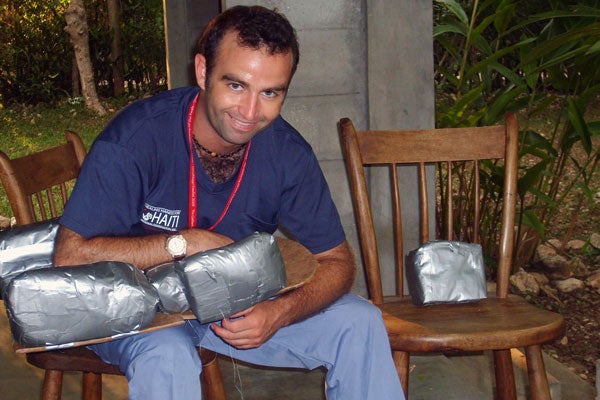
Weston Fellow Shaun Cleaver: improving disability and rehabilitation services
Published: June 3, 2013
With an eye to developing globally oriented thinkers and innovators, the W. Garfield Weston Doctoral Fellowship Program provides 16 Canadian graduate students from the University of Toronto with a travel award of $50,000. The award will further their research, broaden their skills and expand their networks in an international setting.
An annual award available to Canadian students across all fields—the humanities, as well as the social sciences, physical and life sciences—The Weston Fellowship is Canada’s only fully-funded award program dedicated to international research at the doctoral level. Recognizing an increasingly borderless world, one with complex, multifaceted and transnational challenges, the Weston Foundation established these fellowships to develop creative leaders whose scope is not only cross-disciplinary but also cross-cultural.
A Weston Fellowship will cover a doctoral student’s one-year tuition costs, the expenses of international travel, a living stipend, and travel within the destination country. It’s available to U of T students who are entering the third or fourth year of their doctoral program, and plan to do research outside of Canada.
Physiotherapist Shaun Cleaver is one of 16 U of T students to receive the distinction this year; U of T News asked him to describe his work and the impact this fellowship will have on his research.
Tell us a bit about your work.
I want to contribute to a movement that develops other ways to think about and do rehabilitation. In this case I mean rehabilitation as an activity to help people who have (or are at risk of having) functional differences to live better. In practice this generally means persons with disabilities, and I would prefer to do this work in collaboration with these people through partnerships with disabled persons’ organizations.
The exercise of developing other ways to think about and do rehabilitation is primarily intended for parts of the world that have less resources and different cultures than we have here in the urban and mainstream parts of Canada. For this reason, I am doing my research in Zambia, a country in southern Africa. Zambia is a poor country where most people live in rural areas, but it is changing. Its economy is developing and people are moving to cities. Through this process, however, Zambians with disabilities do not have the same opportunities as other citizens. Rehabilitation activities could help improve opportunities for Zambians with disabilities, but only if they are designed in ways that are consistent with the country’s realties.
In my PhD, I will work together with Zambians with disabilities to conduct research that helps people understand the ways that rehabilitation can be done in order to best improve the situation of people with disabilities in that country. We will determine exactly how to do this research together, although I will be responsible for ensuring that it is of good academic quality and for doing most of the writing that is needed in the project. I foresee this research being highly useful in Zambia, but also having impacts elsewhere in the world.
What drew you to this field and to this focus in particular?
I have been trained as a physiotherapist for 11 years now and have spent nearly five of those living and working outside of urban southern Canada. I’ve occupied a number of roles, the most prominent of which was to work on developing rehabilitation services in Haiti, primarily through the task of training rehabilitation technicians. Through these experiences it became clearly obvious that the approach that I took to disability and rehabilitation in Haiti, in Cameroon, and in remote northern Ontario was not appropriate for the circumstances. To be specific, I was finding that the priorities and the activities were not congruent with the cultures and resource realities of the contexts, and the incorporation of these differences would require major changes in the way I worked.
Moreover, other colleagues with similar training to me would often be critical of, or even hostile to, attempts to do things differently. With time I recognized a key missing piece to the entire process: that the voices of the people our work was supposed to help the most, persons with disabilities, were generally absent from the conversation on how things should be done. From that time I have been seeking ways to collaborate respectfully with persons with disabilities to reconceive the ways in which we approach rehabilitation, especially in areas that are different from the urban and North American or European contexts where my field of rehabilitation was initially developed.
What drew you to U of T?
My decision was primarily driven by the opportunity to work with my co-supervisor: Dr. Stephanie Nixon at the International Centre of Disability and Rehabilitation (ICDR). When I was thinking about where to do my PhD I engaged in a pretty extensive search process. During that time I considered multiple mentors in different universities, but Dr. Nixon was the one with whom my ideas resonated most clearly. This made me want to come to U of T to work with her. In addition to this, the presence of the Collaborative Doctoral Program in Global Health was also important.
What does the Weston Fellowship mean to you?
The Weston Fellowship is a great opportunity for my development as a researcher by allowing me to engage in activities that I could not otherwise pursue, such as more travel within Zambia and the region and a more comprehensive approach to my research. It is also an important opportunity to be part of a community of globally-minded and inspiring doctoral students at U of T.



